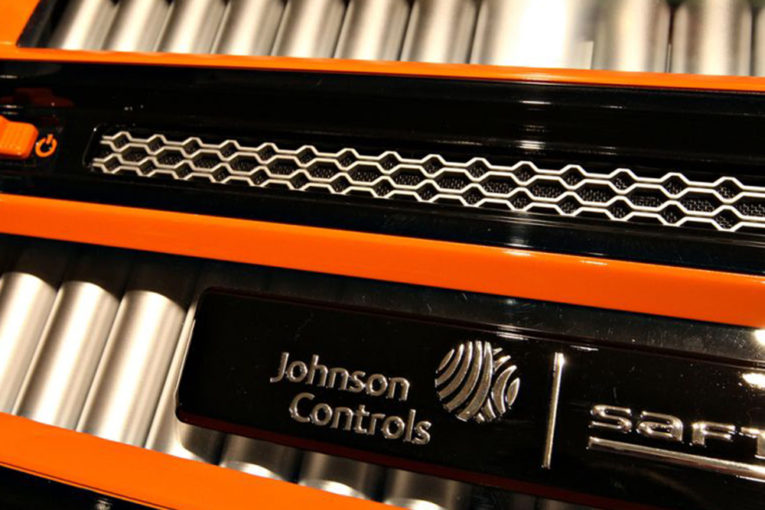
The rapid growth of the electric vehicle industry may be drawing headlines, but when it comes to drawing major investments, the internal combustion engine remains on solid footing.
In a deal that highlights the breadth of the traditional automotive industry, two Canadian investment funds on Tuesday announced a US$13.2-billion deal to purchase the leading global manufacturer of lead-acid batteries.
Toronto-based asset manager Brookfield Business Partners and pension manager Caisse de dêpôt et Placement du Québec (CDPQ) along with other investors will jointly acquire 100 per cent of Ireland-based Johnson Controls’ automotive business — which shipped 154 million automotive lead-acid batteries in 2017.
Although the buyers described the asset as positioned to benefit from growth in electric vehicles, analysts said its business remains tied to vehicles with internal combustion engines.
“As positioned right now they’re not an electric vehicle type play,” said Brian Bernard, an analyst at Morningstar Research who covers Johnson Controls.
It is Brookfield Business Partners largest acquisition to date since the unit went public in 2016. The stock rose 2.3 per cent on the Toronto Stock Exchange to $50.03.
Johnson Controls has a leading share in the global market for the lead-acid batteries used in traditional vehicles, at about 36 per cent, and has also been growing its absorbent glass mat batteries segment, Bernard said.
The latter segment, known as AGM batteries, allow vehicle engines to shut off at red lights and other stop points, and then quickly restart. That function creates better fuel economy for vehicles, which automotive manufacturers are increasingly seeking, said Bernard.
“The growth in those things has been double-digits phenomenal,” said Bernard, adding, “A lot of their investment has been building capacity for that.”
Such batteries are also necessary to meet increased power demands as automakers add screens, computers and other functions inside cars, he said.
The deal is expected to close by June 30, 2019. It will be funded through a mix of US$3.2-billion equity and US$10.2-billion in long term debt financing, with Brookfield and CDPQ each putting up 30 per cent of the equity and the balance funded by other institutional investors who were not named.
Brookfield declined to make an executive available for comment, and CDPQ said no one was available to speak.
In announcing the deal, the investors stressed the strength of the Johnson Controls’ Power Solutions’ business: market leading position, stable cash flows, diverse customer base.
The buyers also emphasized that Johnson Controls’ Power Solutions “is well-positioned to benefit from growth in demand for advanced batteries in all vehicle powertrains including electric vehicles.”
Bernard said that although Johnson Controls’ has a lithium-ion battery facility in Michigan, it’s not a significant player in that market.
Indeed, the company has been moving away from its automotive roots after spinning out its car-seat unit in 2016. The latest sale completes its transformation to a “pure-play” provider of fire, security, climate control and building-management systems.
Chris Berry, of House Mountain, an adviser to companies that mine battery metals, said that the lithium-ion battery in electric vehicles is not comparable to the lead-acid batteries found in internal combustion vehicles.
“The lead acid battery — OK, it’s been around forever,” said Berry. “On the lithium-ion side, you have a number of different chemistries and there’s a tremendous amount of intellectual firepower that’s going into building a lithium-ion battery that will take you further on a single charge.”
In the battle to build the next great lithium ion battery, most of the major players are in Asia, in particular China, said Berry. It is investing billions of dollars every year to develop a supply chain for battery grade material such as lithium and cobalt, and then build facilities that can manufacture batteries.
“They know they’re not going to compete with the West, which has 100 years of internal combustion engine technology,” said Berry, “So they’re saying why not dominate the EV industry?”
Some analysts project electric vehicles could account for as much as 15 per cent of all vehicles in a decade or so, up from around one per cent now, said Berry. But even under that scenario, traditional vehicles would account for 85 per cent of the market.
Jose Lazuen, an analyst at Roskill who focuses on advanced transportation, said Johnson Controls has a strong clientbase and stable cash flows.
While growth in the electric vehicle market may excite people, Lazuen said Brookfield and CDPQ’s decision to purchase Johnson Controls’ Power Solutions likely came down to basic fundamentals.
“They saw an investment opportunity to make returns,” he said.
• Email:
You can read more of the news on source
